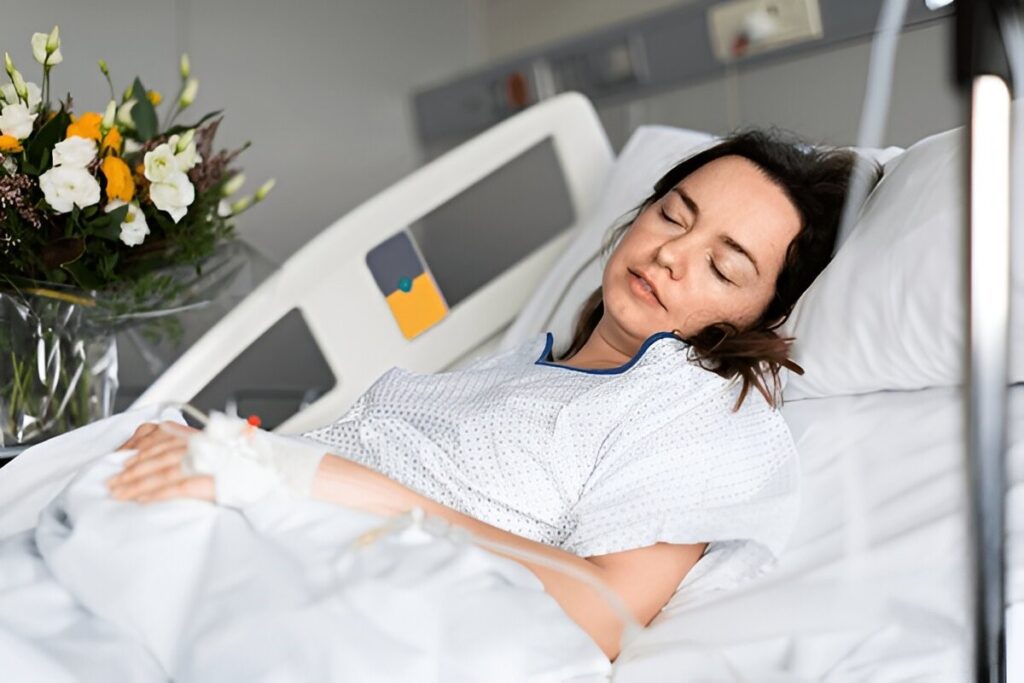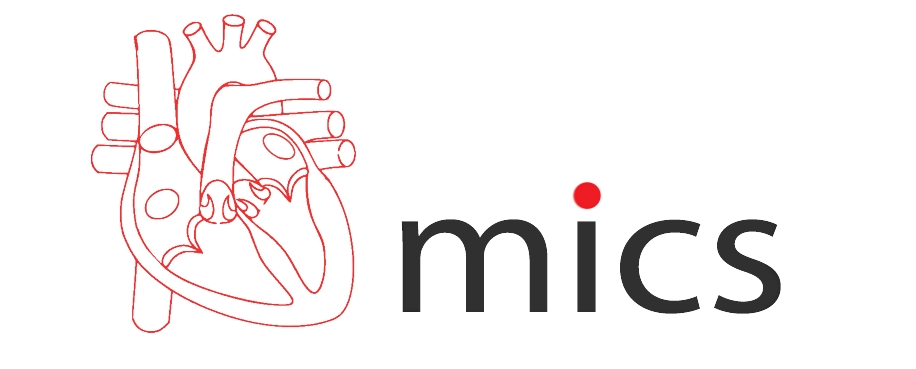Heart surgery is a big decision, and it’s natural to have questions about what comes after. Among the most common is: Will the recovery be painful?
At Micsheart, we believe that healing doesn’t just happen in the operating room. It continues at home, through care, patience, and clarity. Robotic heart surgery, by its very nature, offers a smoother recovery one that involves less pain, faster mobility, and a quicker return to daily life.
Is Recovery After Robotic Heart Surgery Painful?
Robotic heart surgery is far less invasive than traditional open-heart surgery. Instead of opening the chest through the breastbone, robotic surgery uses a few small incisions between the ribs. This reduces trauma to muscles and bones which in turn leads to less pain and a faster recovery.
Most patients describe the discomfort as manageable often likened to muscle soreness or pressure rather than sharp pain. In the initial days, you may feel tired and experience tightness or mild soreness in the chest. However, with appropriate care and medication, these symptoms tend to ease quickly.
What Recovery Really Feels Like: From Day 1 to Week 4
Every patient recovers differently, but most follow a predictable and encouraging path:
- Day 1: You may feel fatigued and sore near the incision sites. Walking with support is usually encouraged to promote circulation and prevent stiffness.
- Days 2–3: Discomfort becomes easier to manage. You may begin short walks in the ward or corridor, sit upright for longer periods, and start regaining energy.
- Days 4–7: Strength and stamina begin to improve. Many patients feel confident walking, climbing stairs, and performing light daily activities.
- Days 8–10: Most patients return to their regular routines. While some may still experience occasional soreness, overall mobility and energy levels are much improved.
- Week 3–4: Most individuals resume work or regular home activities, with continued improvements in breathing, strength, and confidence.
Real Stories. Real Recovery.
Watch how one of our patients, Subhash Chaudhary, overcame his hesitation about robotic heart surgery and experienced a smoother, less painful recovery. Thanks to Dr. Sathyaki P. Nambala’s expert guidance and skill, Subhash’s journey reflects the true potential of minimally invasive cardiac care.
https://youtu.be/0nG2S1sNKxQ?si=lx3m4shVwZJV8xPu
Why Robotic Surgery Leads to Less Pain and Faster Recovery
Several factors contribute to a more comfortable recovery after robotic heart surgery:
- Minimally invasive technique: Smaller incisions mean less tissue damage.
- No need to cut the breastbone: This drastically reduces structural trauma and post-surgical pain.
- Lower risk of complications: Less bleeding and a reduced chance of infection contribute to faster healing.
- Faster mobility: Patients are encouraged to move earlier, which helps reduce pain and stiffness.
At Micsheart, robotic surgery is not just about advanced technology it’s about helping patients heal with minimal disruption to their lives.
Managing Pain During Recovery
While robotic surgery significantly reduces pain, mild discomfort is a normal part of recovery. Here’s how to stay in control of it:

- Medication management: Take pain medications as prescribed. Over time, many patients switch to over-the-counter options.
- Breathing and mobility exercises: Gentle movements and deep breathing help prevent stiffness and support lung function.
- Use of supportive pillows: Holding a pillow to the chest when coughing or moving can reduce pressure on healing areas.
- Listen to your body: Rest when needed, but keep moving a little every day to maintain strength and circulation.
Emotional Healing After Surgery
Physical healing is only one part of recovery. It’s also common to experience emotional changes—ranging from anxiety and fatigue to occasional low moods. These responses are natural and often improve with time and support.
If you ever feel overwhelmed, speak with a loved one, a member of your care team, or consider short-term counseling. Healing is not just physical—it’s personal.
When to Contact Your Doctor
While most discomfort fades steadily, you should seek medical advice if you experience:
- Sharp or persistent chest pain
- High fever or chills
- Redness, swelling, or discharge around the incisions
- Difficulty breathing or irregular heartbeat
- Dizziness or fainting
Reaching out early ensures a safe and smooth recovery.
Support That Extends Beyond Surgery
Recovery doesn’t end when you leave the hospital. At Micsheart, we walk beside you long after the procedure, offering support, guidance, and clarity as you regain your strength.
From pre-surgical preparation to post-operative care, our focus remains on helping you return to your life with confidence and peace of mind.
A Calmer Path to Healing
Robotic heart surgery has changed the way we think about recovery. It’s no longer just about surviving a major procedure—it’s about returning to life sooner, with less pain, and more confidence.
At Micsheart, we combine the precision of advanced robotic technology with something even more powerful: unwavering human care. Every decision we make, every treatment we offer, is guided by your comfort, safety, and well-being.
From your first consultation to the final stages of healing, our team stands beside you—not just as specialists, but as partners in your recovery. Because at Micsheart, heart surgery is not the end of something. It’s the beginning of something better.

Dr. Sathyaki Nambala
🗣 English, Hindi
Get Directions

